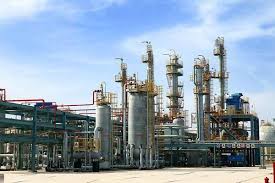INEOS to shut two German plants amid ‘industrial suicide’ fears for Europe
INEOS plans to shut two of its production units in Rheinberg, Germany, as soaring energy costs, rising carbon prices, and insufficient tariff protection continue to erode Europe’s chemical competitiveness.

INEOS plans to shut two of its production units in Rheinberg, Germany, as soaring energy costs, rising carbon prices, and insufficient tariff protection continue to erode Europe’s chemical competitiveness. The company described the current policy environment as “industrial suicide” for the region.
Europe’s chemical industry has struggled since 2022, squeezed by weak demand, escalating costs, and aggressive global competition — particularly from the US and Asia. According to sources, roughly 4 million tons of cracker capacity are already slated for closure, fuelling concern that the crisis could ripple through multiple industrial sectors.
INEOS CEO Stephen Dossett said the company views the current environment as tantamount to “industrial suicide” for Europe, citing a combination of high energy prices, costly carbon policies, and the absence of tariff protection. He noted that producers in the US and China are benefiting from cheaper energy, while European firms face rising costs and unrestrained competition from high-emission imports — a situation the company warns could trigger further plant closures, job losses, and deeper dependence on other regions for vital raw materials.
The company has already shut plants in Grangemouth, UK, and Geel, Belgium, while mothballing sites in Tavaux, France, and Martorell, Spain. Another German facility in Gladbeck is also slated for closure.
The closures are expected to cut 175 jobs and weigh further on Germany’s industrial base, already reeling from an 18% drop in chemical output since 2019.
INEOS argues that Europe’s lack of tariff protection is accelerating the shift of production overseas, contrasting the EU’s stance with that of the US, where tariffs help prevent oversupply from Asia. Some imported materials, the company notes, are produced using cheap Russian feedstocks — undermining both Europe’s economy and climate goals.
In a separate but related move, INEOS will also cut around 60 jobs — roughly 20% of its workforce — at its Hull plant in England, citing persistently high energy costs and mounting pressure from competitively priced Chinese imports.
Written: Farid Muzaffar
